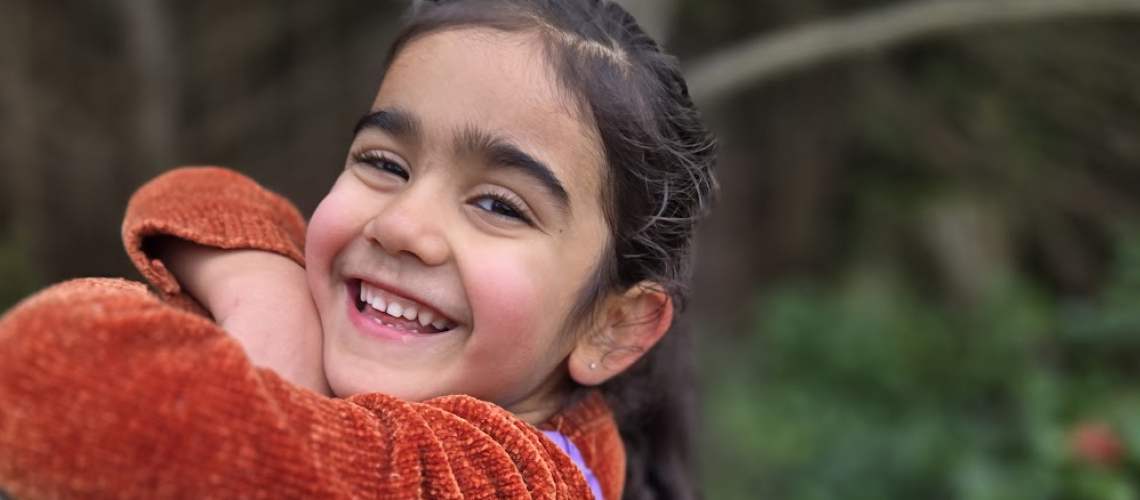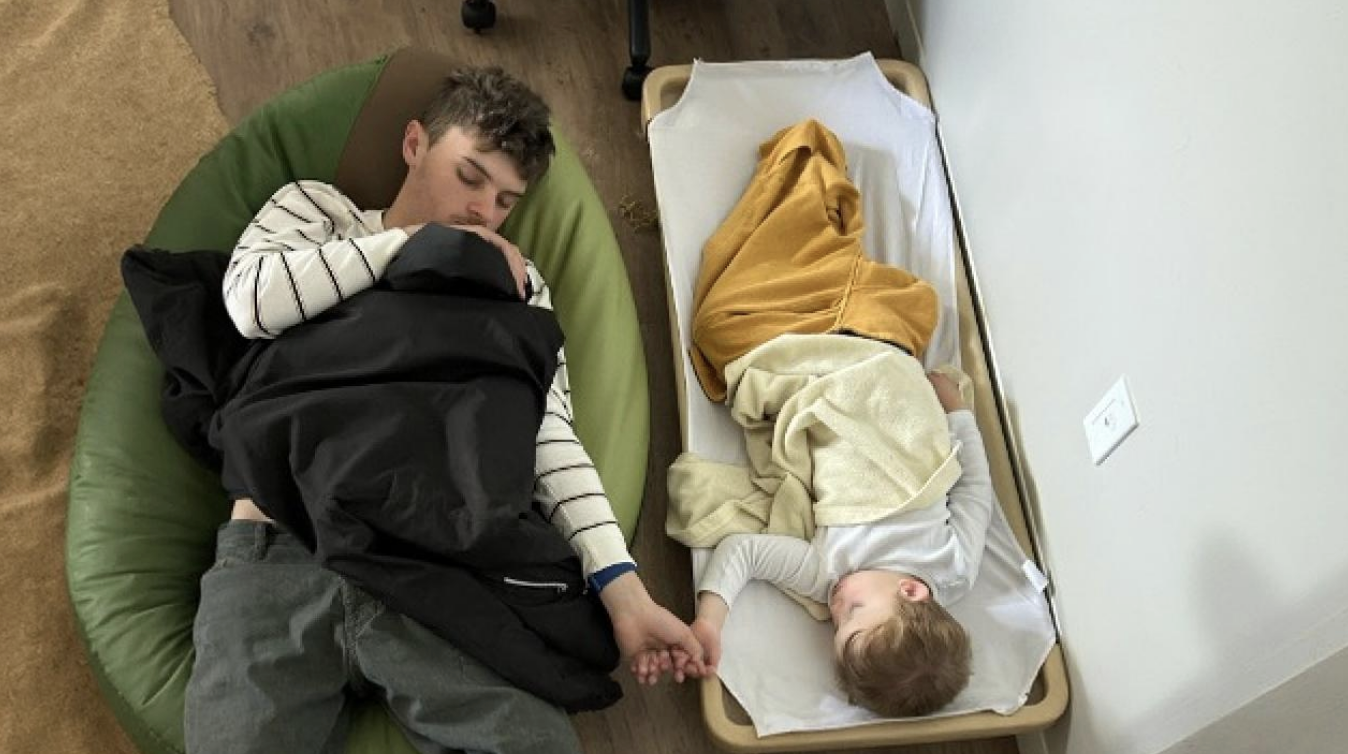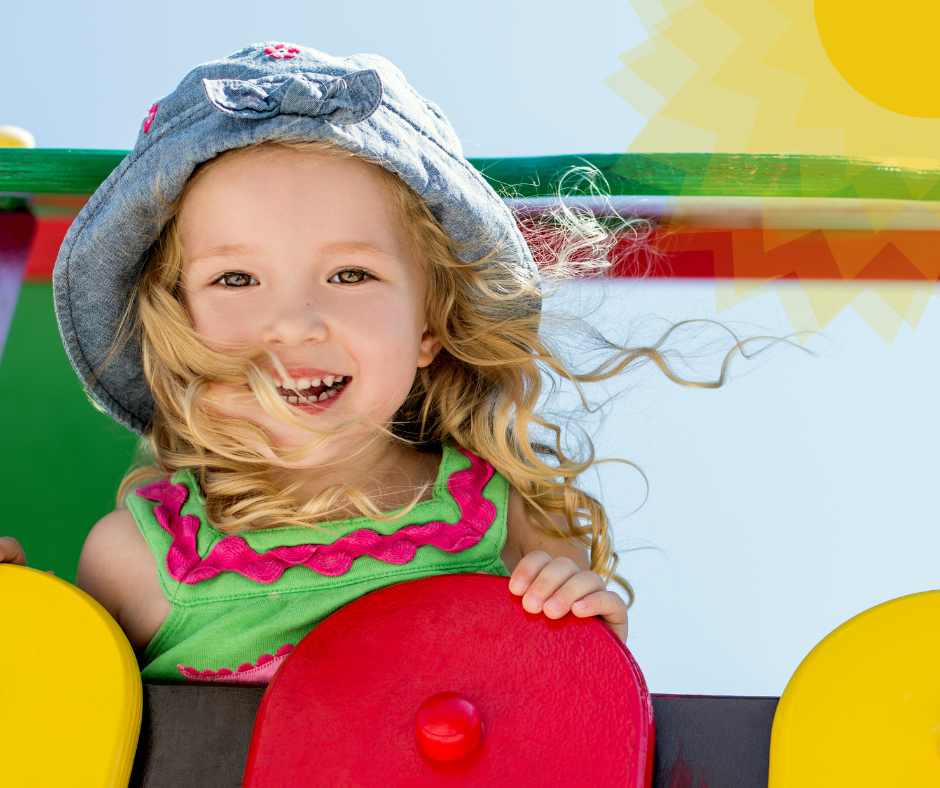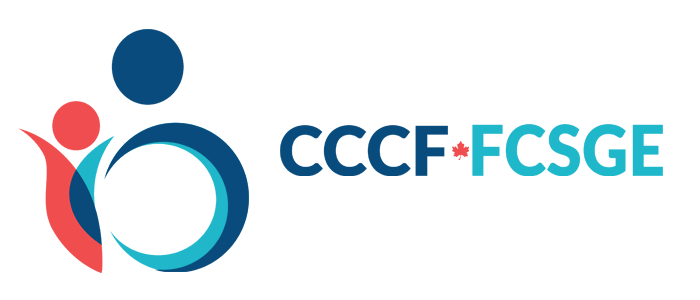Read about the author’s journey as an educator from burnout through self-care and how the process reconnected her with her purpose to empower children socially and emotionally — reigniting passion and discovering tools to support others experiencing burnout.
By Reena Kukreja
The playground buzzed with laughter and excitement. It was a cool autumn day with differently coloured leaves crunching under our feet as we walked to the playground. Sana, was about 18 months old, waddled ahead of me, her tiny legs determined to reach the slide. As she hurried across the path, she stumbled, landing face-first on the ground. My heart skipped a beat. Instinctively, I began to say, “You’re okay, get up.” But something stopped me.
In that split second, I remembered a lesson I had learned not long ago: children don’t just need reassurance; they need validation. So, I knelt down to her level, meeting her teary gaze. “Oh no, you got an owie,” I said softly. She nodded, tears streaming down her cheeks. We hugged, and after a moment, she wiped her face, smiled, and ran off to play.
This simple moment, so seemingly ordinary, has stayed with me as a cornerstone of my journey as an early childhood educator. It reminds me daily of the power of our responses to children—the way we meet them in their emotions, rather than brushing past them. As educators and caregivers, we have the privilege of shaping how children view themselves, their emotions, and their capacity to navigate the world.
The Power of Words in Shaping Beliefs
Children are not born with beliefs about themselves; they develop these through interactions with the adults around them. As a children’s life coach I’ve seen firsthand how the words we use create ripples in a child’s world, often echoing into adulthood.
I’ll never forget a moment with a five-year-old girl in my class who was struggling to tie her shoes. Frustrated, she threw them across the room, declaring, “I’m bad at this!” Instead of correcting her behaviour immediately, I knelt beside her, picked up the shoes, and said, “It looks like this is really hard for you right now, but you’re learning. Let’s try together.” Her eyes lit up. She tied her first bow that day, and we celebrated as though she had won an Olympic medal.
Moments like this underscore the importance of our choice of words. “You’re learning” reframes a struggle as a process, not a failure. This subtle shift teaches resilience, a skill children carry far beyond the classroom.

Lessons from the Children Themselves
One of the greatest joys in early childhood education is witnessing the wisdom of children, often delivered in the most unexpected ways. While shopping at Costco one busy afternoon, my daughter Sana, who was about 2.5 years old, had just started to speak in full sentences. She was eagerly waving at everyone we passed. Her confidence and cheerful demeanour lit up the store. At one point, an elderly couple approached us, charmed by her friendliness.
The woman crouched down and asked her about her name, age, etc. She then asked this question I hear all the time: “What do you want to be when you grow up?”
I braced myself for her response, knowing Sana was at an age where her imagination and words often surprised people. Without hesitation, Sana confidently declared, “I want to be a witch!”
The couple, clearly taken aback but still amused, chuckled and suggested more conventional roles, saying, “You can’t be a witch . . .now choose: what about being a doctor or a teacher or a dentist?.
Sana, standing her ground with a twinkle in her eye, stopped them mid sentence. “No, you choose, you have two choices, I will be a witch, or I can be a unicorn.”
I couldn’t help but laugh, bursting with pride at her unwavering confidence and vibrant imagination. That brief interaction was a reminder of how limitless a child’s world can be when we let their creativity shine.
It was a humbling moment that shifted my perspective not just as an educator, but as a parent and a human being.
From Burnout to Balance
Despite these fulfilling moments, the demands of early childhood education can be overwhelming. Burnout is a reality many of us face, fueled by long hours, emotional labour, and the pressure to meet the diverse needs of children and families.
For me, the turning point came during the pandemic. As a single mother homeschooling my daughters, I found myself depleted, running on autopilot. I realised I couldn’t pour into others when my own cup was empty. This led me to prioritise self-care — quiet early mornings, long meditations, writing for reflection, and nature walks.
“Through this process, I rediscovered why I chose this profession: to empower children, not just academically but emotionally and socially. Reconnecting with my purpose reignited my passion and gave me tools to support others experiencing burnout. I began advocating for self-care not as an indulgence, but as a necessity in our field.”
The Future of Early Childhood Education
As we look to the future, the call for sustainable, inclusive, and high-quality child care grows louder. The $10aDay Child Care Plan is a step in the right direction, but its success depends on continuous investment—not just in facilities and programs, but in the educators who are the heart of it all.
To support children, we must first support ourselves and each other. Building a strong community of early childhood educators, sharing stories, and learning from one another is vital. It’s in these shared experiences that we find inspiration and strength to keep going.
A Call to Action
National Child Day reminds us of our shared responsibility to uphold children’s rights, regardless of who they are or where they come from. Let’s use this day to reflect on how we, as educators, parents, and advocates, can create environments where every child feels seen, heard, and valued.
As we continue on this journey, let’s remember the words of Fred Rogers: “Anyone who does anything to help a child in their life is a hero.” Together, we can be heroes, one small moment at a time.
About the Author:
Reena K Kukreja is a children’s life coach, keynote speaker, and former teacher.. She is passionate about transforming the way we connect with children and inspiring others to empower young minds. When she’s not homeschooling her two daughters, she enjoys sharing her insights through speaking and writing.












